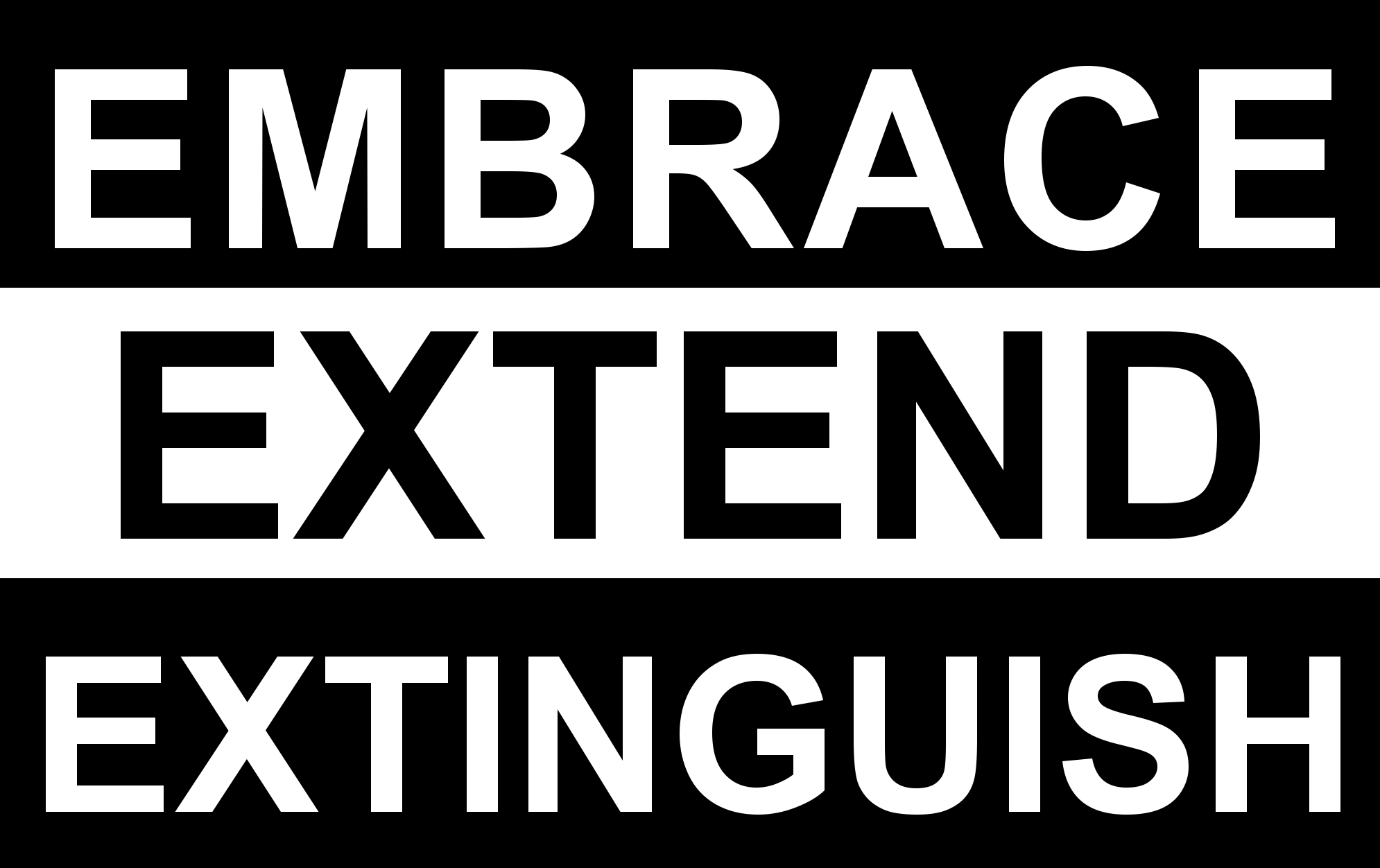

Credit: unknown (Twitter)
MR. TORVALDS, who wrote a good kernel and then licensed it under the terms of Stallman's GPL, is still eager to take over the desktop, as a lot of this weekend's coverage noted [1,2,3]. Given the disinterest in this goal at the Linux Foundation (which now receives money from Microsoft in all sorts of way), this is important. Don't let Microsoft simply relegate GNU/Linux, making it an 'app' of Windows [4]. There's keylogging and worse things in there. We need to strive for freedom [5] and Stallman has just published an article about the conundrum which is a Free (libre) environment entrapped in a proprietary one (with back doors in Microsoft's case).
"Don't let Microsoft simply relegate GNU/Linux, making it an 'app' of Windows."Microsoft is now using Trump methods of associating GNU/Linux with Vista 10. This was a truly clever marketing strategy which dominated the media last week, courtesy of (for the most part) Microsoft boosters with their puff pieces, blurring the lines between freedom and mass surveillance.
Over the past week I've read several testimonials in Reddit and other forums from people who escape Windows because of lack of freedom. They move to GNU/Linux for idealogical reasons and practical reasons such as privacy and control. One sort of 'testimonial' also came to me personally and said:
I'm about to splurge and buy me a new laptop. I want to go for a slightly older model which won't come with Windows 10 pre-installed. I now realise that I might just be able to make the jump to Linux as a native OS. The switch would be more for practical reasons than ideological ones. I now realise that I monitor software updates as closely as if they were spam malware attachments, as MS now tries to slip through a Win10 "upgrade" at least once a month. How many times must I say no for them to understand?
My few MS-specific software items would continue to run on the home "mainframe" (an older laptop that is too battered to take on the road, but which is a vast improvement over the ~2003 vintage desktop it replaced). Fortunately, there aren't too many of them, and none are absolutely essential for mobile use, even though some of them would be really nice to have. I'm now far enough up the learning curve to be able work my way around.
The phrase "year of the Linux desktop" has been around for well over a decade but has become more of a meme rather than a statement of fact. Without a doubt, Linux has seen much success on mobile devices, including smartphones and tablets, as well as servers, network appliances and the emerging "internet of things" device category. However, despite Microsoft stumbling with Windows Vista and Windows 8.x, Linux failed to capitalize on these moments of weakness.
While Linux has lost many battles to Microsoft on the desktop, the war is not over. Torvalds pledges to dedicate the next 25 years of his life to usurping Windows. Will the open source kernel prove victorious on the desktop? It is totally possible. After all, time is not finite, and even the Roman Empire fell. If you follow history, nothing lasts forever and that should ring true for Microsoft's stranglehold on the desktop.
While Linux and other open source technologies continue to rule the server and mobile markets, the desktop arena is still dominated by Windows operating systems. Linux creator Linus Torvalds knows this fact very well and expresses his commitment to work hard to make Linux a bigger force in the desktop war.
There has been a lot of talk lately about a most unique combination: GNU—the fully free/libre operating system—and Microsoft Windows—the freedom-denying, user-controlling, surveillance system. There has also been a great deal of misinformation. I’d like to share my thoughts.
[...]
Free software is absolutely essential: it ensures that users, who are the most vulnerable, are in control of their computing—not software developers or corporations. Any program that denies users any one of their four freedoms is non-free (or proprietary)—that is, freedom-denying software. This means that any non-free software, no matter its features or performance, will always be inferior to free software that performs a similar task.
Not everyone likes talking about freedom or the free software philosophy. This disagreement resulted in the “open source” development methodology, which exists to sell the benefits of free software to businesses without discussing the essential ideological considerations. Under the “open source” philosophy, if a non-free program provides better features or performance, then surely it must be “better”, because they have outperformed the “open source” development methodology; non-free software isn’t always considered to be a bad thing.
[...]
Secondly, when you see someone using a GNU/kWindows system, politely ask them why. Tell them that there is a better operating system out there—the GNU/Linux operating system—that not only provides those technical features, but also provides the feature of freedom! Tell them what free software is, and try to relate it to them so that they understand why it is important, and even practical.
It’s good to see more people benefiting from GNU; but we can’t be happy when it is being sold as a means to draw users into an otherwise proprietary surveillance system, without so much as a mention of our name, or what it is that we stand for.
Everyone has at least a good reason to prefer software freedom over non-free software products.
This is the type of Linux desktop deployments we all want to see more of. No drama, just regular users using Linux all day to get their job done.